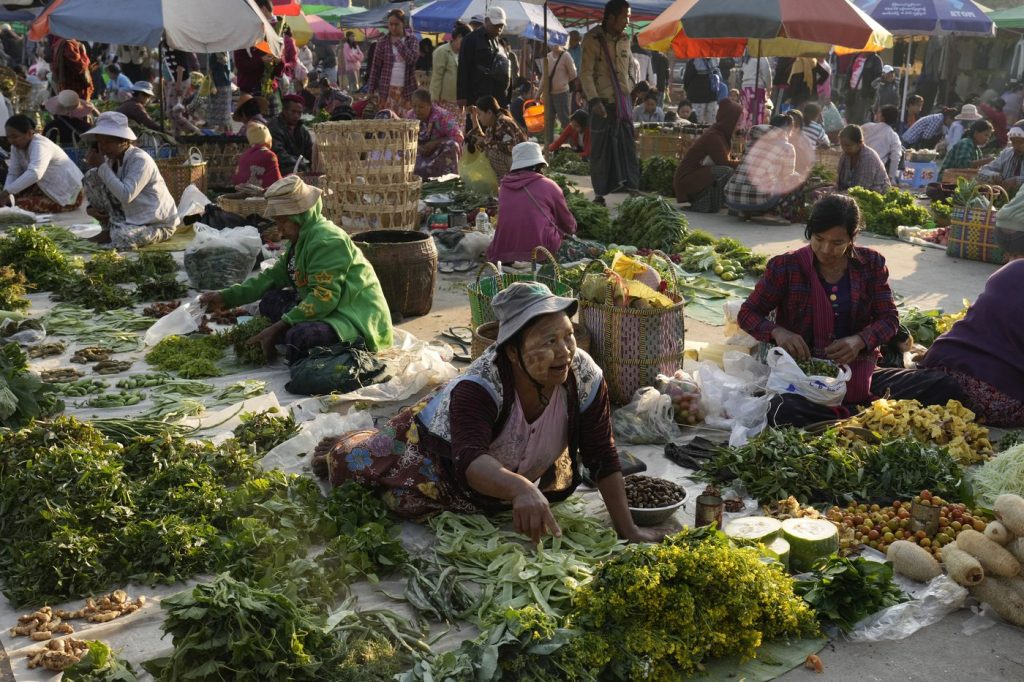BANGKOK (AP) — Peace prospects in Myanmar appear grim as civil war persists, despite international pressure on the military regime that seized power from an elected civilian government four years ago. The absence of negotiation space between the military government and major opposition groups fighting against it highlights the escalating tensions in the country.
Since the military's takeover on February 1, 2021, Myanmar has been engulfed in multiple overlapping crises, with almost half of the population living in poverty and the economy in turmoil, according to the U.N. Development Program. The situation for civilians has deteriorated significantly, with the U.N. Human Rights Office reporting that the military has ramped up violence against civilians, resulting in the heaviest civilian death toll since the coup.
The military has conducted relentless airstrikes and artillery shelling against civilian areas, leading to mass displacement and arbitrary arrests, while depriving humanitarian access even during natural disasters. U.N. human rights chief Volker Türk expressed deep concern, stating that civilian conditions are worsening daily, despite the military's waning power, with their violence expanding in both scope and intensity to intimidate and control the population.
International condemnation has come from nations like the United States, United Kingdom, and European Union, all criticizing the military’s actions and calling for the release of ousted leader Aung San Suu Kyi and other political prisoners. Nearly 20 million people require humanitarian assistance, with an increase of 1 million internally displaced individuals over the past year. The statement from these countries warned that the current trajectory is unsustainable for both Myanmar and the broader region.
The military's takeover ignited widespread protests, brutal suppression of which led to an armed resistance that has culminated in civil war. Ethnic minority militias and the People’s Defense Forces, allied with Myanmar’s opposition, currently control significant territories, while the military retains control over central areas and major cities, including the capital, Naypyidaw.
The Assistance Association for Political Prisoners documented that, since the coup, at least 6,239 individuals have been killed and 28,444 arrested, with many more likely unaccounted for due to limitations in reporting from remote areas. Aung Thu Nyein, director of communications for the Institute for Strategy and Policy-Myanmar, noted that the country’s sovereignty, previously proclaimed by the military, is deteriorating significantly.
Over the past year, the military has faced unprecedented defeats on the battlefield at the hands of ethnic armed groups, particularly in northeastern areas near the Chinese border. The coalition of ethnic rebels has successfully captured towns and military strongholds, undermining the army's control in various regions of Myanmar.
In an effort to achieve a political resolution, the military government is advocating for elections, claiming they will be held this year. Critics argue that these elections will not be free or fair, as civil rights have been suppressed and many political adversaries imprisoned. On Friday, the military extended a state of emergency by another six months, citing the need for more time to restore stability prior to voting, although no specific election date has been provided.
Tom Andrews, a U.N. human rights rapporteur, asserted that conducting a legitimate election under the current conditions of repression—including arrests, torture, and executions—would be impossible. He urged governments to dismiss the military's electoral plans as fraudulent, emphasizing that the integrity of the electoral process has been severely compromised.










